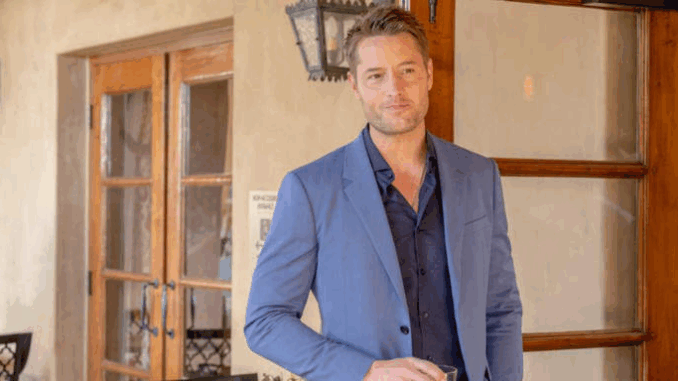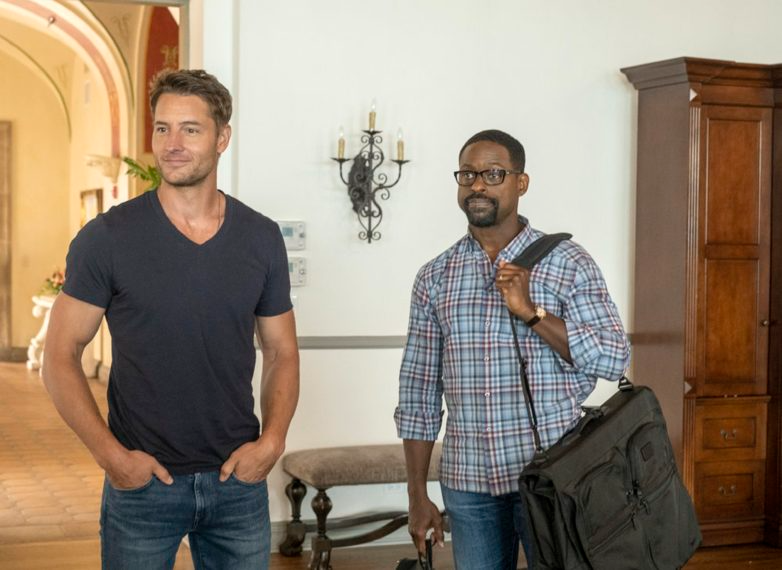
How One Actor Helped Redefine Masculinity for a New Generation of Viewers
In a media landscape still recovering from decades of emotionally closed, hyper-masculine archetypes, Justin Hartley stands out—not for rejecting masculinity, but for redefining it. With roles that blend strength and vulnerability, action and emotion, Hartley has become a surprising figure in the quiet evolution of male representation on screen. Through characters like Kevin Pearson on This Is Us and Colter Shaw on Tracker, Hartley has helped carve out space for men to be flawed, expressive, confused, and healing—all without losing credibility or charisma.
This article explores how Hartley has shifted the cultural narrative around masculinity in television, becoming not just a fan favorite, but a touchstone for a more emotionally honest model of manhood.
The Old Leading Man vs. The New
For decades, Hollywood’s leading men have largely fit a specific mold: stoic, invulnerable, physically dominant, and emotionally distant. Think John Wayne, Clint Eastwood, even early-era Bruce Willis. Feelings were for side characters. Heroes didn’t cry; they avenged.
Justin Hartley could have easily followed that tradition. With his tall frame, square jaw, and classic movie-star looks, he fit the mold visually. But what he brought to his performances—especially in This Is Us—was something entirely different: depth, doubt, and emotional transparency.
As Kevin Pearson, Hartley portrayed an actor struggling with addiction, abandonment, father issues, and identity. In any other show, Kevin might have been a sidekick or a comic foil. Instead, he was central—and his vulnerability, his weeping, his fear, and even his emotional neediness were treated not as weaknesses, but as essential parts of his humanity.
Kevin Pearson: A Blueprint for Nuanced Masculinity
Over six seasons of This Is Us, Hartley guided Kevin through some of the most complex emotional arcs in contemporary television. From grappling with his father’s death and his own feelings of inadequacy, to navigating failed relationships and addiction recovery, Kevin was a man constantly evolving—and frequently unraveling.
Audiences, particularly male viewers, responded to this with unexpected depth. Online forums and comment sections were filled with stories of men who saw themselves in Kevin: “I’ve never seen someone portray what I’ve been through with alcohol and shame like that,” one Reddit user wrote. “It made me feel seen.”

Hartley brought gentleness to Kevin’s strength, anxiety to his pride, and openness to his emotional pain. He cried onscreen—frequently—and these weren’t dramatic sobs or over-the-top breakdowns. They were subtle, quiet, real. And for many men, they were revelatory.
“I’ve had guys come up to me and say, ‘I didn’t think I could talk to my brother until I saw that scene,'” Hartley said in an interview. “That’s what acting is for. That’s the power of story.”
Colter Shaw and the Emotionally Wounded Action Hero
In Tracker, Hartley again plays a strong male lead—this time in a more action-driven context. But even here, emotional complexity is front and center. As Colter Shaw, Hartley portrays a loner haunted by a traumatic childhood and the mysterious death of his father. The show balances its weekly crime-solving plots with a rich, slow-burn character arc that unpacks Colter’s emotional damage, his trust issues, and his yearning for connection.
What could have been a rugged, tough-guy survivalist became instead a deeply thoughtful portrayal of a man hiding pain under competence.
This is key to Hartley’s ongoing cultural impact: he doesn’t trade one stereotype for another. His characters don’t reject strength, independence, or confidence—they embody them—but alongside empathy, insecurity, and the occasional breakdown. It’s a masculinity that isn’t binary—it’s blended, flexible, human.
The Cultural Ripple Effect: Representation That Matters
Hartley’s performances have had a tangible impact. In academic circles, his work has been cited in discussions about the “post-heroic male” and “evolving male vulnerability in prime-time television.” Media professors have noted how Kevin Pearson, in particular, helped normalize men going to therapy, crying openly, and discussing childhood trauma—all once considered taboo for male characters in mainstream media.
His work also appeals across generations. Older viewers appreciate the nuance, while younger viewers—especially millennial and Gen Z men—see in Hartley’s characters a rare permission to feel, to question, and to express.
Social media is full of posts like, “I wish I could talk to my dad the way Kevin talked to Jack in that episode,” or “Colter Shaw is who I want to be—strong, but kind. Guarded, but not cruel.”
Real Life, Real Impact: Walking the Walk Off-Screen
It’s not just Hartley’s roles that model a different kind of masculinity—it’s his personal life, too. In interviews, he speaks openly about fatherhood, therapy, vulnerability, and the ongoing work of self-improvement. He praises strong women in his life, talks about emotional intelligence as a strength, and frequently rejects macho posturing.
“Being vulnerable isn’t weak—it’s the opposite,” Hartley told Haute Living. “It means you’re brave enough to be real.”
He also leads with humility. He often redirects credit to his co-stars or writing teams, and avoids the ego-traps that plague so many leading men. Colleagues describe him as “emotionally grounded,” “deeply collaborative,” and “quietly generous.”
The Next Phase: Hartley as a Cultural Influencer
With producing roles on projects like Truth Be Buried and Capital Veins, Hartley is now in a position to shape not just his own characters, but the industry’s broader narratives. He has expressed interest in developing content that explores male mental health, generational trauma, and father-son dynamics—all themes he’s intimately familiar with through past performances.
He’s also a vocal supporter of organizations focused on men’s wellness and suicide prevention, and has hinted at eventually launching a foundation or media partnership focused on changing the way men talk about pain.
Conclusion: A Modern Masculinity Icon, By Example Not Lecture
Justin Hartley doesn’t give TED Talks on masculinity. He doesn’t write essays or campaign for cultural change. What he does is perhaps more powerful: he lives and acts with integrity, softness, and inner strength—and he lets his characters do the same.
By bringing emotional honesty to his roles, and backing it up with humility off-screen, Hartley has become something rare in modern entertainment: a masculine role model who isn’t afraid of tears, doubt, or tenderness.
In doing so, he’s helped change what it means to be strong—and reminded audiences that real courage isn’t about hiding your pain. It’s about sharing it.
